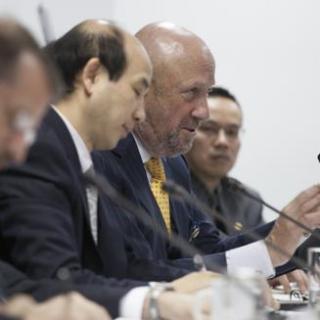
介绍:
With Tsai Ing-wen taking office in Taipei next week and the U.S. presidential election approaching, new players will be taking the reins in the Asia-Pacific. In this podcast with Paul Haenle, Douglas Paal discusses the future of U.S.-China relations and the broader Asia-Pacific region in the wake of these leadership transitions in the United States and Taiwan.
Paal said that Asia has not commanded the attention of U.S. voters so far, given the current turmoil in the Middle East and crises in Europe. In a shift from his advice following Obama's re-election, Paal suggested that the new U.S. president should take time to put his or her administration in place before pursuing any wide-ranging discussions with mainland Chinese leaders. Cross-Strait ties are important for the region at large, yet Paal asserts that the tenor of these relations will depend primarily on China’s actions in the coming months.
Douglas H. Paal
Douglas H. Paal is vice president for studies at the Carnegie Endowment for International Peace. He previously served as vice chairman of JPMorgan Chase International (2006-2008) and was an unofficial U.S. representative to Taiwan as director of the American Institute in Taiwan (2002-2006).
Paul Haenle
Paul Haenle is the director of the Carnegie–Tsinghua Center for Global Policy based at Tsinghua University in Beijing. Haenle’s research focuses on Chinese foreign policy and U.S.-China relations.
上一期: Is China's Belt and Road a Strategy? With Paul Haenle and Xie Tao
下一期: View from Moscow: China's Westward March
下一期: View from Moscow: China's Westward March
大家还在听

